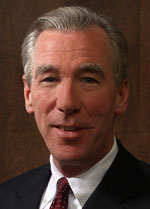What can we even say about December’s massacre in Newtown, Conn.? Adam Lanza murdered his mother, forced his way into a school, and killed 20 children and six adults before killing himself. The slaughter was especially frightening and sad because it involved so many little children and the adults protecting them.
There was a depressing familiarity to it. In less than two years we have seen a lot of similar incidents:
* Jared Lee Loughner killed six people and wounded U.S. Rep. Gabrielle Giffords outside a grocery store in Tucson, Ariz.
* One L. Goh shot seven people at Oikos University in Oakland, Calif.
* James Holmes killed 12 people in a movie theater in Aurora, Colo.
* Wade Michael Page killed six people at a Sikh temple near Milwaukee.
* Jacob Tyler Roberts killed two people at a mall in Portland, Ore.
These recent massacres call to mind earlier killings at Virginia Tech, Columbine High School and a dozen other places. The frequency of the crimes almost suggests a kind of Werther effect — the name we give to suicide contagion caused by public attention to the phenomenon.
We were still praying for the children and their parents when the media began airing the debate about how to keep this from happening again. This too has a familiar air about it. We always turn to the government and the psychiatric profession for solutions.
We teach our children that they are autonomous moral actors, responsible for defining their values. This produces a culture where the strong decide the fate of the weak. Then when something like this happens we want the government to protect us from the natural consequences of our own folly.
Some say the government should ban handguns or semi-automatic weapons. I’d be in favor of that. And it might make a dent in the killings. But it wouldn’t make a big difference.
Federal law forbids people Lanza’s age (20) from buying handguns from dealers. (He used his mother’s guns.) Federal law also forbids guns within 1,000 feet of a school. To make shootings impossible — not just illegal — we would need a system of controls that would surpass the most dystopian regulatory fantasy.
Some say we should do a better job at identifying and treating mental illness. We should. The shooters almost always are young men and often mentally ill. More often than not they kill themselves at the end of their rampages. But there are a lot of sullen, withdrawn and awkward young men out there.
For our psychiatric safety net to catch the potential shooters, it would have to scoop up thousands of ordinary guys who are just struggling to get through adolescence or the trials of young adulthood. And what would we do with them once we rounded them up?
I’m not saying we shouldn’t pursue those ideas. But I think we won’t make real headway with the problem unless we change the culture, and that is a job for us, not for the government or the psychiatric profession.
The culture that young men grow up in is one where violence is not just present but glamorized. At the national and corporate levels we see unjust wars and the arms trade. At the state level, capital punishment. At the individual level we give constitutional protection to abortion, to video games that simulate assault and murder, and in some places to assisted suicide.
We teach our children that they are autonomous moral actors, responsible for defining their values. This produces a culture where the strong decide the fate of the weak. Then when something like this happens we want the government to protect us from the natural consequences of our own folly.
When Cain killed Abel, he tried to deflect the Lord’s inquiry by suggesting that we are each in charge of our own affairs: “Am I my brother’s keeper?” We have to relearn Cain’s lesson. Yes, I am my brother’s keeper. All life is sacred. We must teach our children habits of virtue, not leave them to chart their own course through the moral life. The Werther effect can work both ways.
***
Garvey is president of The Catholic University of America in Washington.
PREVIOUS: Putting social media to work for the church
NEXT: Connecticut shootings hit close to home for mom




It seems to me that we should limit the number of bullets a gun can fire to 3 (not 100). This would take the “mass” out of “mass shootings”. I also think the government and effected citizens should sue: (1) violent video game manufacturers; and (2) assault weapon manufacturers if their products have ANY involvement in mass shooting incidents. We should use the power of the “market” to put these nut cases out of business.